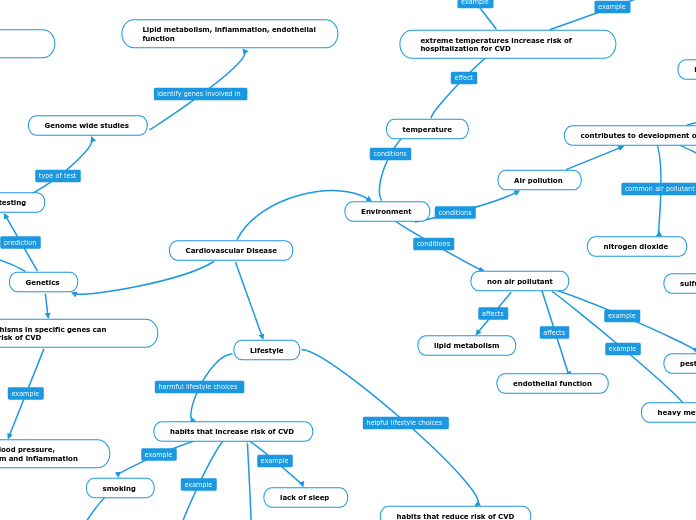
Genetic testing
Genetic markers
Lipid metabolism, blood pressure, inflammation
Genome wide studies
Lipid metabolism, inflammation, endothelial function
evolution and natural selection
adaptations that were once useful can now contribute to the development of CVD
increased insulin resistance
polymorphisms in specific genes can increase risk of CVD
genes that regulate blood pressure, cholesterol metabolism and inflammation
habits that increase risk of CVD
smoking
damages blood vessels
excessive screen time
lack of sleep
poor diet high in saturated fats, trans fats, added sugar and sodium
habits that reduce risk of CVD
eating a mediterranean diet
regular exercise
social engagement
Air pollution
contributes to development of CVD
oxidative stress
inflammation
development of atherosclerosis and hypertension
endothelial dysfunction
sulfur dioxide
nitrogen dioxide
temperature
extreme temperatures increase risk of hospitalization for CVD
colder temperatures cause higher risk for those who already have CVD
causes vasoconstriction
increases blood pressure
high temperatures can contribute to development of CVD
causes dehydration
increases blood viscosity
non air pollutant
heavy metals
pesticides
endothelial function
lipid metabolism